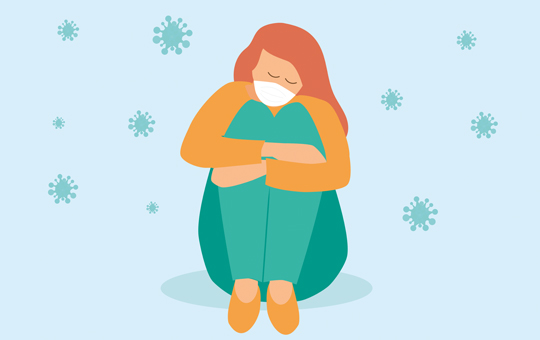Find out more about virtual attendence
This masterclass is for anyone who wants to explore self-injury from a young person’s perspective. We examine how normalised this behaviour has become, and how young people are bombarded with self-injury content. We consider the effects of the pandemic; KOOTH figures showed a 45% increase in calls about self-injury on the previous year. We listen to young people; why they do it and what they get out if it. Teenagers have shared with us what adults do that helps and what doesn’t. We have worked with wider agencies and created both broad and focused guidance, including how siblings can be supported. Our Parent’s Session, created to promote understanding and better communication, is discussed. We address topics such as whether or not to hide sharps.
You will hear in detail from one young person, about their long relationship with self-injury, and what being under CAMHS meant for them. What helped the most - what they wish adults had and hadn’t done - and how practitioners can make small changes that would mean everything. We share our resources and how you might use them.
”The thing that made the biggest difference in my life was knowing someone cared enough to listen.”
Key Learning Points:
- COVID-19 context; what the pandemic has done
- Walk in their shoes; how bombarded teens are with pro-injury information
- Chemical and emotional – what it’s like to have a teenage brain (because adults forget…)
- Deeper understanding of why teenagers self-injure, and what it does for them
- Support strategies and suggestions; what teens have told us helps and why
- Navigating with parents and wider agencies
- How to use our resources
- What it’s like to be under CAMHS – a young person’s experience
Facilitated by:
Kate and Zoe created the Self-injury Pathway Project, a hugely successful 2-year CAMHS pilot, achieving 100% uptake from Somerset’s secondary and middle schools. Central to everything was the time spent with Participation Groups and Somerset’s LGBTQ+ Group for young people, 2BU. This resulted in celebrated training, Guides, resources and a ground-breaking film. Two years of research also meant incorporating the latest findings from books and studies from leaders in this field. Zoe worked for 4 years as a teacher in Hospital School; seeing firsthand how young people and their families were affected by self-injury. Kate worked in a Pupil Referral Unit and Forest School, and both have worked in mainstream settings across key stages. Kate featured on Surviving Self-Harm; a File on 4 documentary, and is currently writing a book. Zoe and Kate launched the Akeso Partnership in May 2021, continuing the work they are so passionately committed to..




